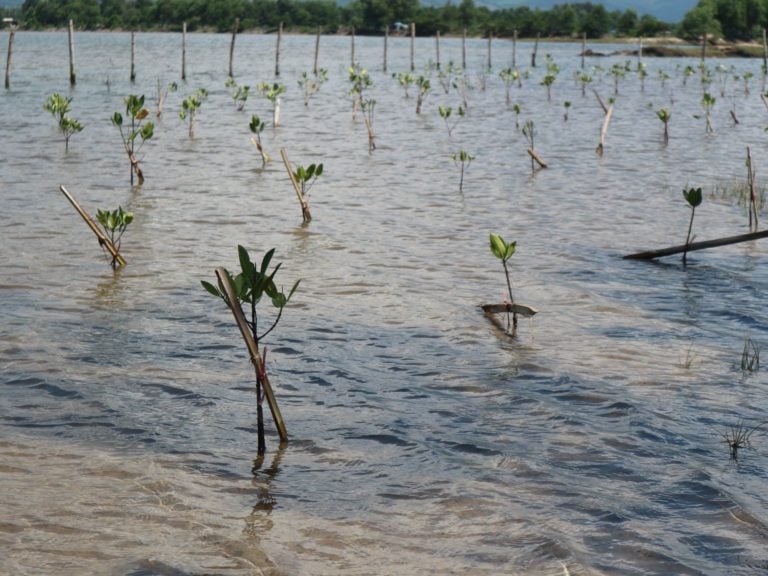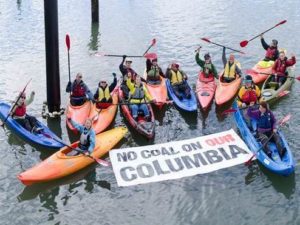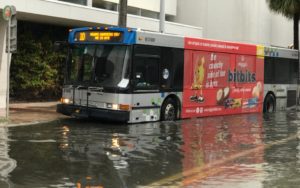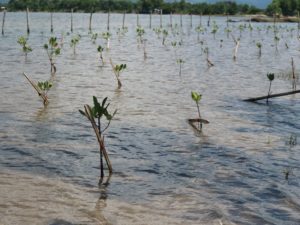
Climate change means more than heat waves and long summers—it means drought, flooding, food insecurity, geopolitical conflict, warming oceans, sea level rise, and so much more. It affects every person on the planet. Waterkeeper Alliance is devoted to protecting our communities and waterways from climate change’s short and long-term effects. We believe that highly trained, effective local leaders are critical to solving this climate-water crisis.
At the Global Climate Action Summit this week, Waterkeeper Alliance is presenting our water-climate commitment. Our commitment comes from our new 20-year business plan, Project Osiris. We are committing to growing the civil society sector of watershed advocates by scaling our organization to have a trained, effective, local Waterkeeper in every habitable watershed on the planet. With our support, these grassroots leaders will use citizen action and science to strengthen law and urge political leaders to take action to save our communities and waterways from the cataclysmic ravages of climate chaos.
The core strength of our movement and climate-water work comes from our Waterkeeper organizations—local leaders who are on the frontlines of climate change. Our advocacy work includes keeping fossil fuels in the ground, stopping new fossil fuel infrastructure, and retiring existing fossil fuel facilities, while advocating for a shift in subsidies and financing from coal and other fossil fuels to renewable energy like wind and solar. Waterkeepers further advocate for climate adaptation and resiliency so their communities thrive far into the future. Through Waterkeeper Alliance, these local actions are given leverage from the support of a global network.
Below are some examples of how our Waterkeepers in the Pacific Northwest United States, Southeast United States, and Vietnam are protecting their communities from climate change:
 Mitigation: Columbia Riverkeeper
Mitigation: Columbia Riverkeeper
To mitigate the role of fossil fuels in changing our global climate, Columbia Riverkeeper, located in Oregon, has combined sophisticated grassroots organizing with savvy legal strategies to defeat proposed fossil fuel infrastructure in the Pacific Northwest. This includes two proposed coal export terminals, two proposed liquefied natural gas export terminals, and three proposed oil terminals. Among many of their efforts, Columbia Riverkeeper is fighting to stop fracked gas, for which infrastructure and consumption is projected to increase dramatically, despite its threat to our climate.

Adaptation: Miami Waterkeeper
Adapting to changing weather patterns is vital, especially among coastal cities. Miami is a sea level rise hot spot and the city has already begun to feel the effects. Their resources are at risk as flooding, ecosystem and habitat loss, and saltwater intrusion increase in frequency and severity. To protect the city and prepare for rising water levels, Miami Waterkeeper formed the Sea Level Rise Readiness campaign. They are focusing on four approaches: 1) promoting green infrastructure and natural defenses such as coral reefs, dunes, and mangroves, 2) educating the public about sea level rise science, 3) advocating for recommendations from the Miami-Dade County Sea Level Rise Task Force and the Southeast Florida Regional Climate Compact, and 4) taking legal action to ensure proper sea level rise planning. Miami Waterkeeper knows that responding to sea level rise is an urgent matter, and is devoted to using the best available science and management practices to be prepared and ready.
 Resilience: Huong River Waterkeeper
Resilience: Huong River Waterkeeper
Waterkeepers are helping increase coastal communities’ climate change resilience against climate change so they can thrive well into the future. In Vietnam, the densely populated coastal city of Hue and surrounding areas— home to more than 350,000 people— have been affected by severe flooding from the sea, rivers, and heavy rainfall. Notably, the Huong River that runs through the city has been profoundly affected by climate change and rapid urbanization, causing unpredictable and extreme levels of flooding. In response, the Centre for Social Research and Development, host organization of Huong River Waterkeeper, and partners are implementing a project entitled, “Enhancing Flood Resilience in Urban and Coastal Areas in Thua Thien Hue Province.” They are using ecosystem-based adaptation to enhance flood resilience in urban and coastal areas. The project also focuses on gender issues in relation to disaster risk management and climate change adaptation by exploring and empowering women’s roles in disaster response and environmental protection.